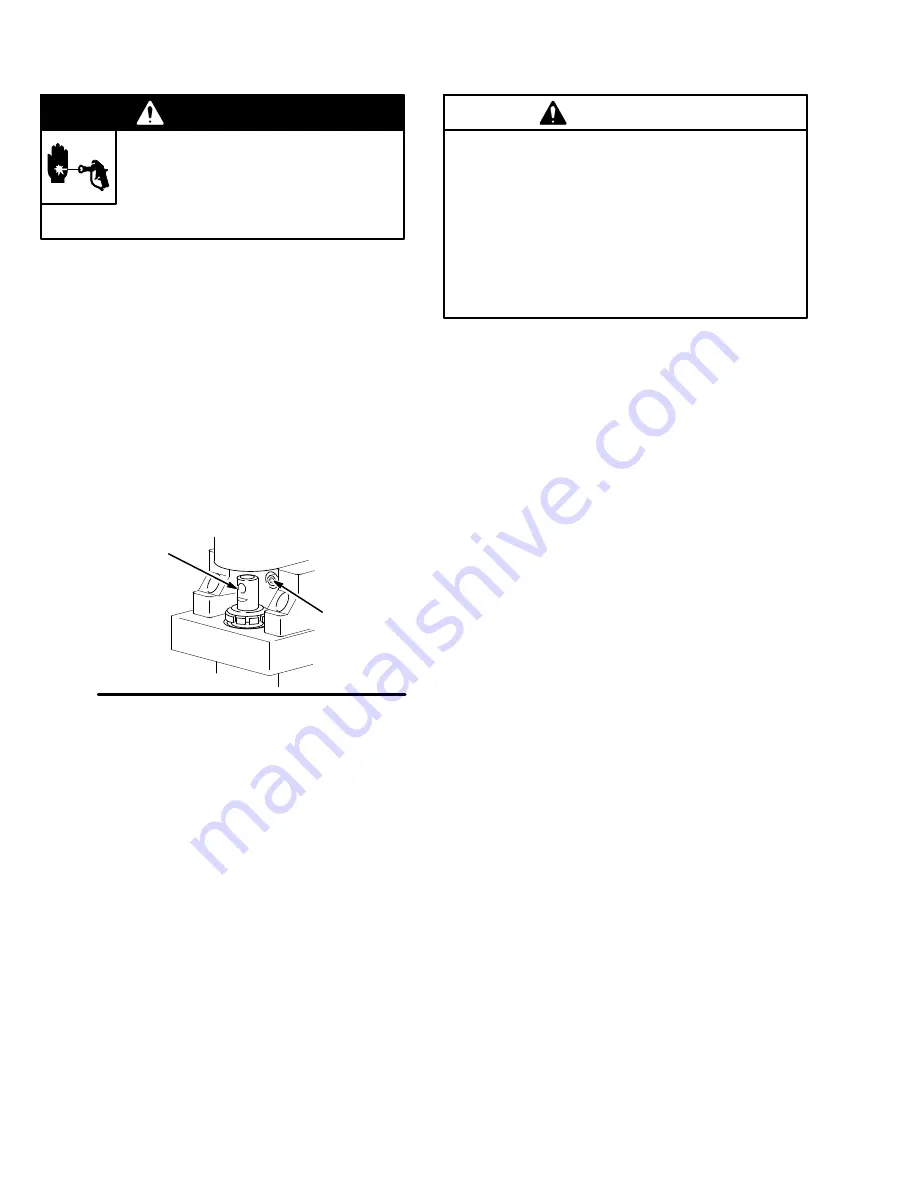
Drive Housing, Connecting Rod, Crankshaft
WARNING
INJECTION HAZARD
To reduce the risk of serious injury,
whenever you are instructed to relieve
pressure, follow the Pressure Relief
Procedure on page 9.
NOTE: Inspect parts as they are removed. Replace
parts that are worn or damaged.
1.
Remove the displacement pump. See page 22.
2.
Remove the pressure control (64). See page 30.
3.
Turn the displacement pump rod (107) so the pin
hole aligns with the bottom drive housing screw
(19). See Fig. 28. Remove the three drive housing
screws and lockwashers (19,6). Also see Fig. 29
on page 29.
107
19,6
Fig. 28
01074
4.
Remove the two motor screws (19) and handle
(24). See Fig. 29 on page 29.
5.
Tap the lower rear of the drive housing (11) with a
plastic mallet to loosen the motor. Pull the drive
housing straight off the motor.
CAUTION
Do not allow the gear (16) to fall; it may stay
attached to the drive housing or to the motor.
Do not lose the thrust balls (11a or 4a) or let them
fall between the gears, which will damage the drive
housing if not removed. The balls, which are heav-
ily covered with grease, usually stay in the gear re-
cesses, but could be dislodged. If the balls are not
in place, the bearings will wear prematurely.
6.
Remove and inspect the crankshaft (12) and the
connecting rod (15).
7.
Install the connecting rod.
8.
Lubricate the inside of the drive housing bearing
with SAE non-detergent oil. Pack the roller bearing
and gears with the grease supplied.
NOTE: The gears and bearings between the drive
housing (11) and motor front end bell (C) should con-
tain a total of 3 fl. oz. (29 cc) of grease.
9.
Route the wire harness (A) through the motor pas-
sages to the junction box (59).
10. Place the large washer (12a) and then the small
washer (12b) on the crankshaft (12).
11. Lift the crank to the top of the stroke and insert
crankshaft (12). Align the gears and push the drive
housing (11) straight onto the motor and the locat-
ing pins. Install the screws (19, 5) and their lock-
washers (6). Torque to 80 in–lb (9 N.m).
12. Install the displacement pump. See page 22.
13. Install the pressure control (64). See page 30.
Install the front cover (13).









































